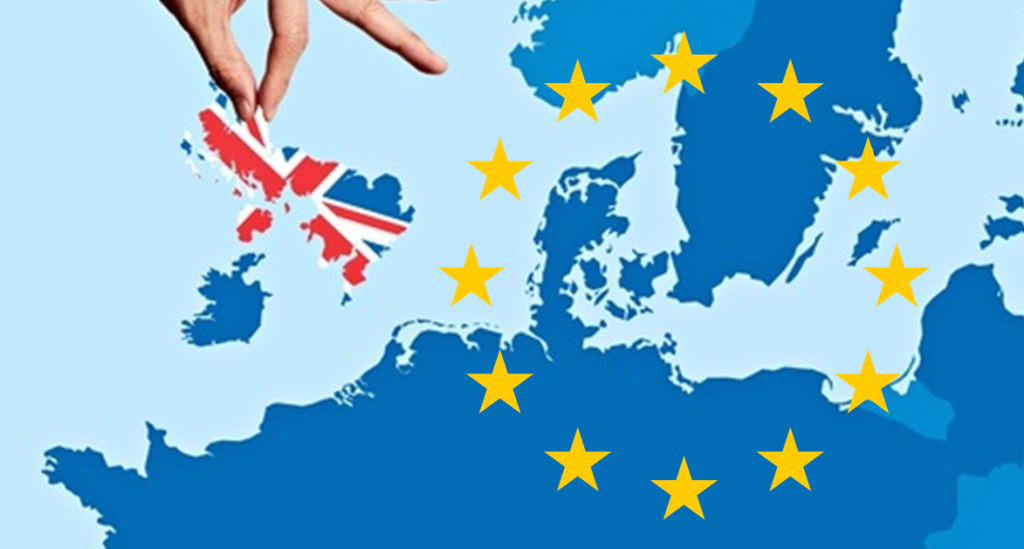Officially: The United Kingdom stopped being a member of the European Union on 1 February 2020. No matter you follow all the Brexit details or just don’t care, chances are you wonder whether there are repercussions on the horizon or the skies are as clear as if Brexit never happened. Brexit is going to change the gambling industry, but the real question is, will these changes work for or against one of the biggest gambling industries in the world?
Before we proceed to the body of the article, let’s take a short note: the UK formally left the EU on 1 February 2020, but the exit is followed by an 11-month transition period during which the UK will follow all the EU’s rules & regulations. In other words, not too much will change until 31 December 2020, the ultimate deadline for everyone willing to get ready for the upcoming changes.

No Regulation Problems for Gambling Operators
The fact that the United Kingdom is one of if not the toughest jurisdiction is quite on the surface – everyone knows it. On the one hand, it’s easy to make deposits with GBP at an online casino, but on the other – it’s extremely difficult for a gambling operator to obtain a license from the UK Gambling Commission. And not for nothing – the research on gambling in Great Britain indicates that an average Briton spends about £10 on gambling per month while 46% of Brits have gambled in the last month. That would be just strange if the UK would accept weak companies.
The UK is one of the most credible gambling markets in Europe and thereby it is unlikely to alter its regulations. According to the Gambling Act 2005 amended in 2014, all offshore brands must be licensed by the UK Gambling Commission to provide services on the territory of the UK. This is a very solid point and we cannot foresee any Brexit-driven regulation changes or issues.
Extra Restrictions Are Likely to Apply after the Closure of the European Single Market
The European Single Market will remain open until the end of the transition period, but then…boom! All the companies, including the UK-based gambling operators that provide services to EU citizens, are likely to be charged additional taxes. Whether bearable or not, the one thing is sure – the Single Market will no longer be available to UK-licensed gambling operators and put them in front of the two choices:
- register other gambling-friendly European jurisdictions, for example, Malta;
- continue to operate under the UK license but with higher taxes.
Neither a) nor b) looks fatal in a field worth £15 billion and employing more than 100 000 people, though some companies may cut bonuses & promotions to cover their expenses.
Uncertainty with Gambling Taxes
Whether Brexit will be ‘soft’ or ‘hard’ is a big deal, especially for international gambling operators offering services on the territory of Great Britain. Why? Because they will have to pay increased taxes if the WTO rules come into force on the territory of the UK. If that does happen, chances are a fair share of foreign operators will stampede just like it happened in 2014 after the 15x raise in the consumption tax on gross profits.
British Overseas Territories
British Overseas Territories encompass 14 territories under the jurisdiction and sovereignty of the United Kingdom, but the only one we really care about is Gibraltar – the UK’s gambling paradise extracting about a quarter of its GDP juice from gambling. Just like the UK, Gibraltar has 11 months to get ready, but the ‘hard’ Brexit will close the border and cut 13 000 people off their workplaces. As a result, Gibraltar-based companies will have to increase their staff expenses.
The Show Must Go On
Britain’s departure started a new chapter in the history of the United Kingdom, but it was not able to shake such a robust and solid gambling industry. Gambling is too profitable and UK gambling operators are too well aware of the changes to be caught off guard. In fact, the UK government even issued a special 8-point checklist to help UK gambling operators to adjust to ‘inelegant’ Brexit. All in all, we may expect certain turbulence – less generous bonuses, lower RPT, fewer UK-based new casinos – but only for a short time.
